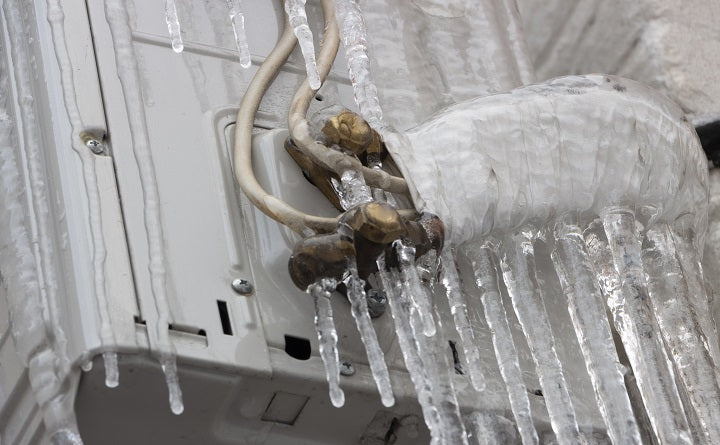Many homeowners are shocked when they see ice forming on their air conditioner during the summer. However, this is a common AC problem, and one that should be dealt with sooner rather than later as its effects could be detrimental to the functionality of your system.
Not only could the icy conditions cause premature wear and tear to the parts in your cooling system, but they could also cause a total breakdown. If this happens, your family will be left with a hot, humid, and uncomfortable home. Fortunately, this is an issue that can easily be avoided with proper maintenance.
Causes of a frozen air conditioner
Air temperature fluctuations
Even though it may be warm enough during the day to turn your air conditioner on to keep your home comfortable, the temperature at night may be cool. This is often the case during the spring when warm days and cool nights are common.
When this happens, and you choose to keep your air conditioner running throughout the night, your system’s internal components may not be able to function properly, and they can “freeze” or ice up. Your air conditioner wasn’t designed to operate in temperatures less than 60 degrees Fahrenheit. If you’ve run your air conditioner during the day and know the temperatures are going to take a plunge at night, turn your system off so a problem doesn’t occur.
Inadequate air flow
If your cooling system isn’t receiving proper air flow, it’s only a matter of time before the internal temperature of your AC’s evaporate coils drops below 32 degrees Fahrenheit. Humidity will collect on the coils and freeze over. When this happens, you will notice ice forming on the coils, and this can impede the overall functionality and efficiency of your cooling system.
Many homeowners might not know what problems could cause inadequate air flow to a cooling system. Common issues include: dirty air filters, an improperly maintained system, dust-filled air ducts, inefficient blower motors, and obstructions inside the evaporate coils.
Regardless of the cause of the air flow problem, it’s a serious issue that could have dire consequences for the efficiency of your family’s AC.
Refrigerant problems
If your cooling system’s refrigerant levels are too low, this could cause air pressure issues inside your system’s evaporator coils. This makes it easy for humidity to form and ice over on the coils themselves. Additionally, if your system is experiencing a refrigerant leak, it could result in ice forming on the vital components of your air conditioner.
How to fix a frozen air conditioner
If you’ve noticed any of the above issues with your cooling system, call an experienced professional to diagnose and treat the problem. Handling any AC repair work is best left to the experts since trying to fix the problem on your own could result in more damage, or an injury as working with refrigerant can be dangerous if you don’t have the required tools and protective gear.


